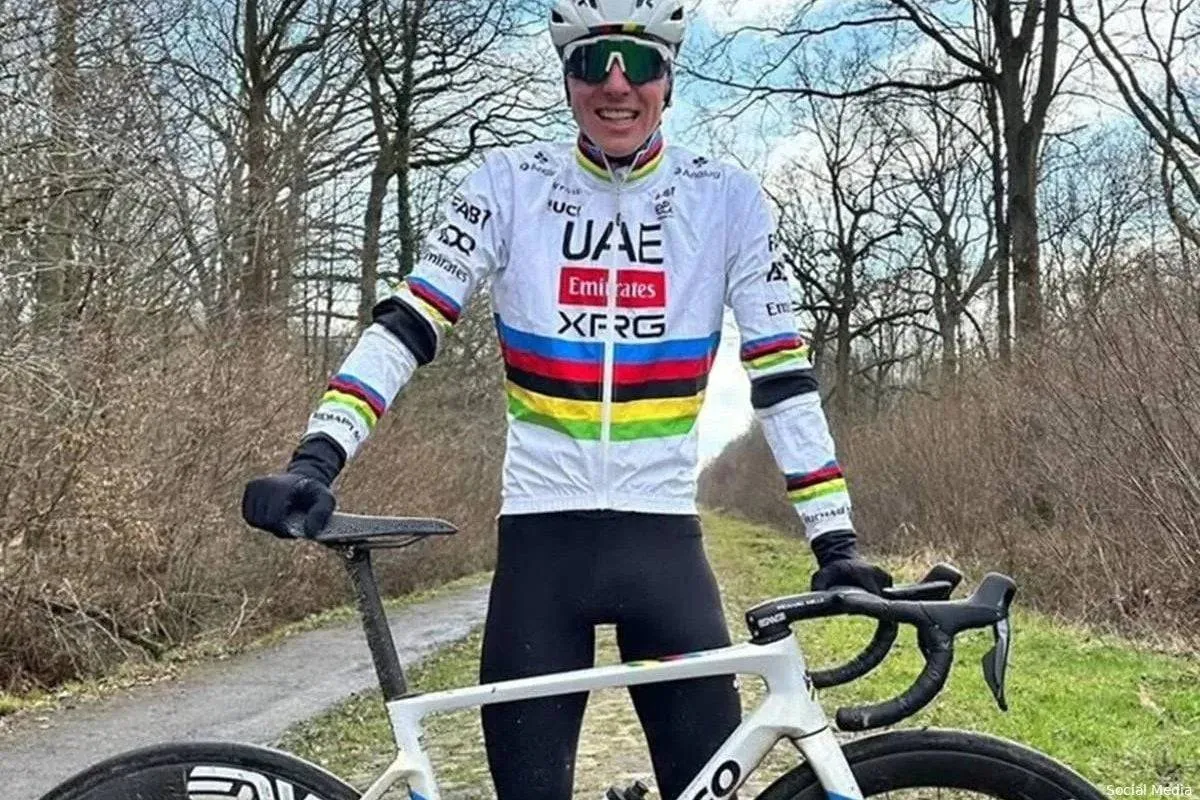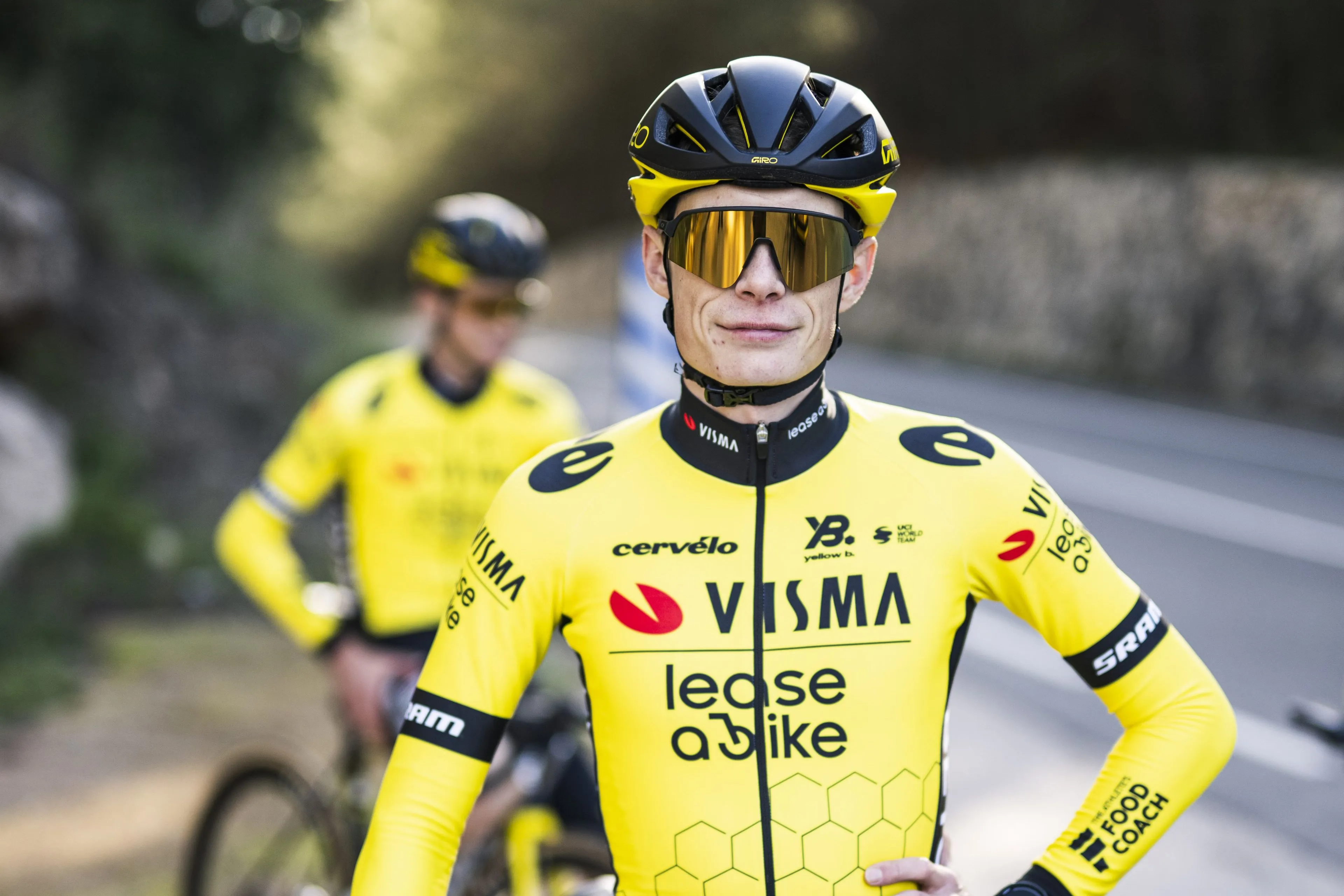Is MTB world champion Alan Hatherly the next road prodigy? "I don’t relate to Van der Poel or Pidcock"
CyclingThursday, 13 February 2025 at 11:10
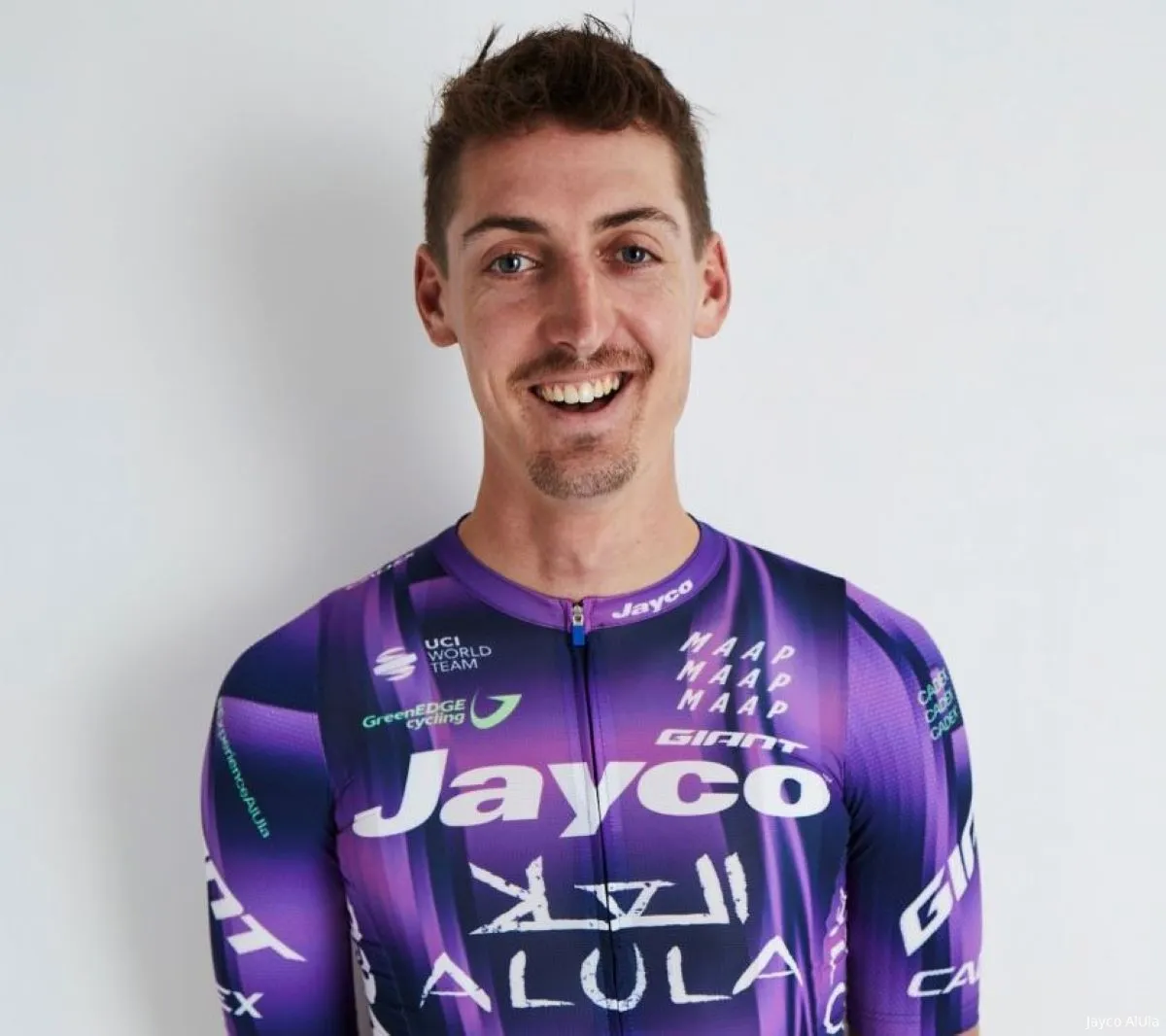
In cycling, you don’t have to start riding a road bike at six years old to become a top professional. In recent years, world-class athletes have transitioned from skiing, rowing, or even marathon running to give the WorldTour a shot. Alan Hatherly has been on two wheels for years, but now, alongside his mountain biking career, he is also aiming for success on the road with Team Jayco-AlUla. IDLProCycling.com spoke with him about his journey, ambitions, Tom Pidcock as a role model, and more.
At 28 years old, Hatherly is not new to road racing—his mountain biking background means he is already familiar with the demands of a racing bike. Over the past two years, he has competed in the South African National Championships as part of EF Education-EasyPost’s development team. This winter, Jayco-AlUla saw his potential and took a chance on him in the WorldTour—why not?
The South African has had an impressive kick start with his new Australian team. He competed for both stage victories and the general classification in the AlUla Tour for five days, ultimately finishing sixth. Last Friday, he claimed the South African national time trial title, and just two days later, he finished eleventh in the road race.
On the MTB circuit, Hatherly made history last summer at the Paris Olympic Games, finishing third—the first African and non-European rider to medal in the men’s Cross-Country event. In 2024, he won his first World Cup races in Mont-Sainte-Anne and Les Gets, securing the overall World Cup title. However, it was his MTB world championship victory in Vallnord that truly captured the imagination.
Read more below the photo.
Hatherly dreams of Olympic gold in Los Angeles
Can you talk about exactly how your transition from mountain biking to road began and why you wanted to make this switch?
"It actually started about two years ago. I had always wanted to race in the WorldTour because, in mountain biking, I felt like I was reaching my ceiling. It was difficult to keep developing, and I believed that stepping out of my comfort zone could help me grow further. Unfortunately, I didn’t get the chance right away, but after the Olympics, some interest started to build. That’s when we mapped out a four-year plan, with the ultimate goal of winning gold at the Los Angeles Olympics in 2028. Competing in some Grand Tours in 2026 and 2027 will help me raise my level."
What are your goals for your road career?
'I will have to invent myself first and get used to the WorldTour environment within this team. I will take it race by race from the start and by the end of 2025, I hope to have several top-10 finishes. Then we can tighten things up further towards 2026.'
What will be the most challenging, in your opinion?
"I need to experience it first before I can answer that properly. Right now, my main focus is getting comfortable within the team and the peloton. If I can feel as relaxed on the road as I do on my mountain bike, then it’ll all be fine. The key will be gaining confidence and racing in the same way."
What type of rider do you think you are?
"According to the team analysts, I’m more of a punchy climber. I can stay competitive in climbs that last over 15 minutes, but in a way, I’m still an open book. I want to discover my strengths and figure out my potential. I’m also really curious to see where this journey will take me."
Do you think you will get the same satisfaction from road cycling?
"On the road, it’s more about patience—knowing when the race truly starts and not missing a crucial moment. If you make it to the finale, that’s the best part. That’s probably where I’ll find the most satisfaction—being in the front group at the decisive moment."
How much have you actually trained on the road in recent years?
"Over the last four years, road cycling has been a very important part of my mountain bike preparation, from September to May. Between May and July, my road training was always less intense, but I’d like to increase that to stay strong even at the end of the mountain bike season. That’s the plan. From January to May, I’ll go full gas on the road, and then I’ll transition to mountain biking, competing in six World Cup races and the World Championships."
Do you have dream races in which you would love to perform well?
"Right now, those are mainly one-week stage races, as I think I can do well there. I don’t know how I’d handle a Grand Tour, and in 2025, it’s not really on my schedule. But races like Tour de Romandie and Tour de Suisse are great opportunities to test myself. Strade Bianche also seems really cool with all that gravel. Maybe I’d be more relaxed than others in a race like that, so I definitely want to test myself there."
In 2024 we saw Tom Pidcock on a mountain bike one week and winning, and getting on a road bike the week after and winning.... How do you look at that?
"I’d love to follow in his footsteps, but it’s incredibly difficult to compete at a high level in both disciplines. You really need to commit to one particular direction, and right now, I’m focusing on the road. If I perform well in mountain biking in 2025, that will be a bonus. My goal is to transition fully and give everything for this team. By 2027, my focus will shift back towards MTB again, but until then, that will take a backseat."
Does this road adventure mean you’ll spend more time in Europe?
"I’ve actually already been spending a lot of time in Europe for the past two years, as Andorra has been my home during the mountain bike season since April. Before that, the weather makes it impossible to stay in Andorra, so I usually train in South Africa under the sun. But I’ll discuss with Jayco-AlUla to decide on my European base for the months leading up to April. It will likely be somewhere further south."
Read more below the photo.
Hatherly doesn't want to compare himself to Pidcock or Van der Poel
Why make it a four-year plan?
"Because it gives me the time to fully develop to the highest level on the road before aiming for the ultimate goal—Olympic gold in mountain biking. Moving to the road right before the Olympics would have been a big risk. This way, I have the time to take that risk, and if it doesn’t work out, I can always go back."
Have you studied riders like Pidcock, Wout van Aert, and Mathieu van der Poel, and how they combine disciplines?
"Not really, to be honest. I’m just diving in blindly because every rider is unique, and everyone’s racing DNA is different. Plus, they’ve been on the road for much longer than I have, so I don’t feel like I relate to them in that sense."
Has the team compared you to someone like Simon Yates based on your numbers?
"Well, based on my power output, they believe I’m a punchy climber, but ultimately, it’s about being in the right place at the right time. You can have all the physical attributes, but if you’re at the back when the decisive moment comes..."
Does Jayco-AlUla have a mountain bike for you?
"I’ll be riding for Giant’s off-road division when I race on the MTB."
Do you think modern road cycling is more open to riders from other disciplines?
"I hope so—I’d love to be a new example for mountain bikers who want to transition to the road. It’s actually harder than people think because there aren’t many teams that believe in combining MTB and road racing. But if I can do it, maybe others will follow."
Why do you think teams are reluctant to combine road and mountain biking?
"Maybe due to experience, but also age. I’m already 28, and for many teams, that’s considered too old. Many mountain bikers want to first compete in World Cups and chase success at a World Championship before thinking about switching disciplines. That’s not something you can achieve by age 23—mountain biking is too specialized for that. Most MTB riders hit their peak between 27 and 30, and by the time they consider switching, they’re often seen as too old for road racing."
So how did you end up in the WorldTour?
"Jayco-AlUla showed interest, analyzed my data, reviewed all my MTB World Cup races, and convinced me that I have a strong punch and could do something on the road. It also helps that Nino Schurter, without any road experience, joined this team back in 2014, and they quickly helped him finish in the top 10 of stage races."
You’ve already done some road racing in South Africa over the years. How did you find that experience?
"I really enjoyed it, though it was tough to win those races. Once everyone knows you’re the strongest, nobody wants to work with you—they just attack you constantly. But those years definitely lit a fire in me to try racing at a higher level."
Are you already thinking about the 2025 Road World Championships in Rwanda?
"That will depend a lot on South Africa’s team selection and how many riders we’re allowed to bring. There aren’t many South Africans in the WorldTour—I think Louis Meintjes and I are the two most likely candidates if we get two spots. But I’m not really focused on that yet."
With gravel racing becoming more popular, will you be adding that to your schedule as well?
"Not yet—the road alone is already a big enough challenge for me. Gravel racing is a completely different sport that requires its own specific preparation."
But Van der Poel and Gianni Vermeersch have already won on gravel. Don’t you think you could do the same, for example, at a World Championship?
"Maybe, but those two have already proven on the road that they have incredible engines. First, I need to prove that I can reach that same level on the road—then we’ll think about what comes next."
Do you have specific goals you want to achieve as you continue this journey?
"A top-10 finish in a one-week stage race is my first goal. I’ll have plenty of opportunities to try that before May. If I can achieve that, I’ll be very happy."
Read also
IDL-productions

After a somewhat forced exit from Alpecin-Deceuninck, Laurance brings van der Poel-like mindset to his new INEOS squad

Preview Tour of the Alps 2025 | Several riders challenge themselves in preparation for the Giro d'Italia

Preview Amstel Gold Race 2025 - women | Vollering, Vos, Van der Breggen, Kopecky, Pauline Ferrand-Prévot—The top riders are all lining up
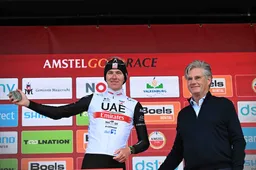
Preview Amstel Gold Race 2025 | Pogacar vs. van Aert, with Pidcock, Nys, Evenepoel & others in the mix

Benoot on Visma | Lease a Bike's race tactics: "That other group had riders we did not want to encounter in the sprint"
Latest Cycling News
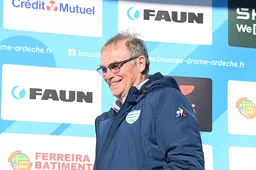
Hinault fires back at French critics over Pogačar doping suspicions: "What would they say if he were French?"

Nys plays it cool ahead of Ardennes: "Never felt better" and "It’s on my mind every day"

Marianne Vos follows van Aert in signing 'contract for life' with Visma | Lease a Bike

"Honestly, for a second I thought Evenepoel was returning the favor to van Aert for the Olympic road race. But no!"

After another top spot, Tibor Del Grosso believes his achievements are being 'hyped'; he skips the Ardennes spring classics
Popular Cycling News

Flashbacks to Amstel Gold Race? Questions raised over mysterious bottle given to Pogacar in Roubaix: "Not everyone gets permission"

Preview Amstel Gold Race 2025 | Pogacar vs. van Aert, with Pidcock, Nys, Evenepoel & others in the mix

Preview Brabantse Pijl 2025 | Evenepoel’s comeback, but also van Aert, Pidcock, a strong UAE team, and many more!

After a somewhat forced exit from Alpecin-Deceuninck, Laurance brings van der Poel-like mindset to his new INEOS squad

"Others get more respite"; is this the best van Aert? Question leads to candid answers at Visma | Lease a Bike
Latest Comments
- Such negative comments that are truly inappropriate and actually ridiculous. He sounds like an old man, bitter that he can't race anymore. Why can't he just be gracious? Or just shut up. Instead of howling for attention, in such a rude manner. Must be Dementia creeping in. We are all living in the Now. Records are there, and some are being broken, some are unapproachable. If he doesn't like it, and it makes him sick, maybe he ought start watching some other sport. Don't want the old mans health to be upset.
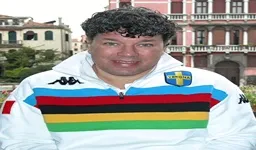 reemmo031-03-2025
reemmo031-03-2025 - Roger De Vlaeminck inspires me to create a new beer: "Bitter Old Twat Belgian".JackInhof31-03-2025
- Shoot, I'll ride it for 1/10 of what his pay for that day is😅Veganpotter30-03-2025
- What is this? The Lance Armstrong daily cheaters channel? I could care less about Johan and Lance the seven times cheater. Greg Lemond was right all along, Why don't you write about that instead of these two knuckleheads.velodrone28-03-2025
- Are we all doomed to hear from Lance Armstrong and Johan bruneel until the end of time? It's not enough the stain they left on cycling? Do we have to see that shadow forever?bigyakman26-03-2025
- I am not sure if it is the hardest to win. In Flanders and Roubaix well before the finish the Peleton will be decimated and the race will normally be won by the best rider of the day or maybe 2nd or 3rd in case of a mechanical or unlucky break especially in case of Roubaix. In San Remo just before the finish there will still be several riders in contention and they are hard to ditch. For the best riders it is a race hard to win since it is not so selective. But if you are not a top 5 rider but still a top 10 rider this race is your best change to win. You will see more Milan San remo Winners with only 1 monument win than any other monumentsJoostmehrtens19-03-2025
- "fap fap fap oh Lance oh oh OHHHHHHH" again. Does he pay you to dredge up people with nice things to say about him? He was an giant a$$hole to people. It is a fact. Whatever his contrition about the doping, he is unapologetic about being a giant a$$hole to people. (Why yes, I do only login to complain. *I* am however only a giant a$$hole to people who laud giant a$$holes.)ericjensenridesbikes25-02-2025
- Remco is still very young. And injuries can absolutely keep you from overdoing it and getting worse. The recent Remco accident didn't keep him from being able to ride a recumbent inside. Wout's knee is a different story thoughVeganpotter23-01-2025
- Van der Poel style is winning by a half a lap and leading the race from the end of the second lap.
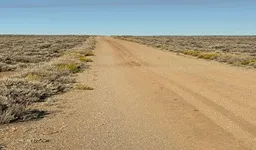 Barnes127420-01-2025
Barnes127420-01-2025 - If she thinks talent alone will put her there she will not see many podium finishes much less a GC finish.....work as a team utilizing tactics to consistently be at the top.Germanrazor10-01-2025
